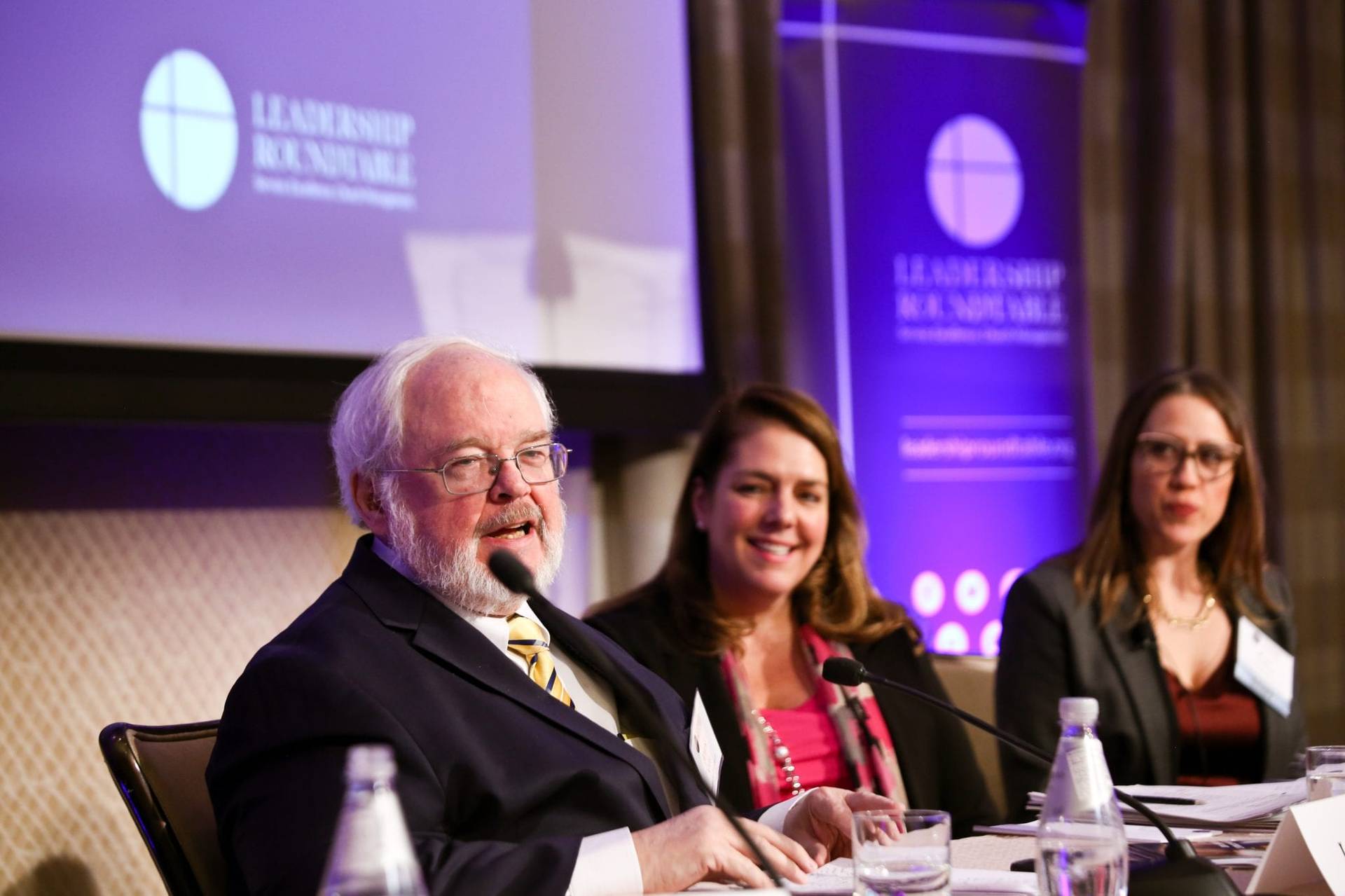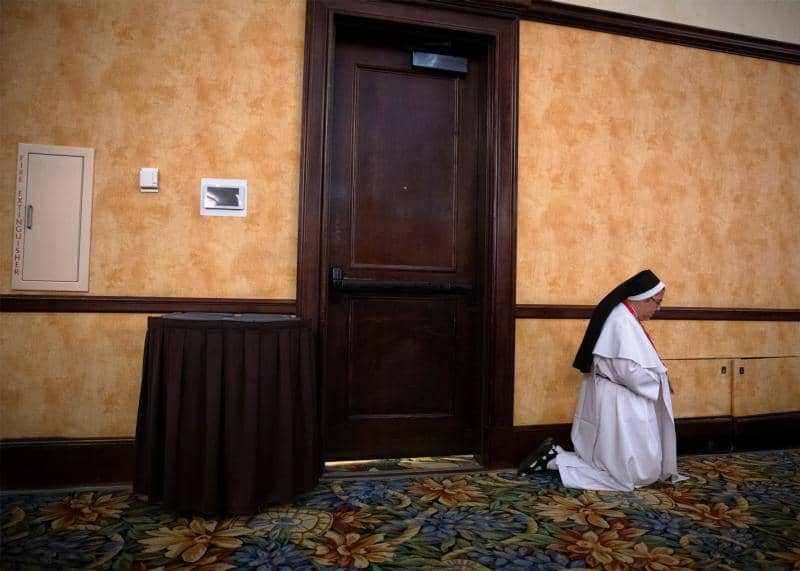ROME – Clerical sexual abuse is the work of the devil and Church personnel complicit in abuse become tools of Satan, Pope Francis said on Sunday, closing a Vatican summit on the protection of children, during which he promised justice for all the victims of these crimes.
“I would state clearly: If in the Church there should emerge even a single case of abuse – which already in itself represents an atrocity – that case will be faced with the utmost seriousness,” Francis said.
“Indeed, in people’s justified anger, the Church sees the reflection of the wrath of God, betrayed and insulted by these deceitful consecrated persons,” he said. “It is our duty to pay close heed to this silent, choked cry.”
There’s no explanation for abuses involving children, the pontiff said, and hence it’s important to “recognize with humility” that the Church stands “face to face with the mystery of evil.”
Francis began his remarks closing a Feb. 21-24 summit that gathered presidents of bishops’ conferences from around the world and other Church leaders by noting that sexual abuse of children is a problem for society as a whole, and that the majority of cases take place within the family.
“Acts of violence take place not only in the home, but also in neighborhoods, schools, athletic facilities and, sadly, also in church settings,” he said. According to UNICEF, 9 out of every 10 girls forced to have sexual relations was abused by someone close to their family.
This is a “universal problem,” Francis said, and the evil is no “less monstrous when it takes place within the Church.” It’s actually more scandalous, he said, because it’s incompatible with the Church’s moral and ethical credibility.
To clean up the Catholic Church is not enough to protect children, Francis said: “The Church’s aim will thus be to hear, watch over, protect and care for abused, exploited and forgotten children, wherever they are.”
To accomplish this, the pope said the Church will have to rise above “ideological disputes and journalistic practices” that exploit tragedy and work together with the whole of society to eradicate this “evil from the body of our humanity.”
Francis also said that the time has come to find an equilibrium to address this evil, avoiding the extremes of a hasty concept of justice provoked by guilt of past errors and pressure from the media, as well as “defensiveness that fails to confront the causes and effects of these grave crimes.”
Though the Vatican had said that no clear guidelines should be expected at the end of this week’s summit, the pope did list eight “best practices” formulated under the guidelines of the World Health Organization that he complemented with the work carried out by the Pontifical Commission for the Protection of Minors and reflections by the 190 participants of the summit.
These best practices are: protection of children; impeccable seriousness; genuine purification; formation; strengthening and reviewing guidelines by episcopal conferences; accompaniment of those who have been abused; the digital world and sexual tourism.
The primary goal of every measure, he said, has to be the protection of minors from any form of psychological and physical abuse. To achieve this, “a change of mentality is needed to combat a defensive and reactive approach to protecting the institution and to pursue, wholeheartedly and decisively, the good of the community by giving priority to the victims of abuse in every sense.”
He also said that the Catholic Church will “spare no effort” to do what’s necessary to bring justice to those who’ve been hurt, never staying silent or failing to treat each case with the seriousness it deserves.
In addition, beyond preventing abuse, the Church needs a “constantly renewed commitment to the holiness of pastors,” constantly questioning how best to protect children, avoid these crimes and bring healing to survivors and victims.
“The holy fear of God leads us to accuse ourselves – as individuals and as an institution – and to make up for our failures,” he said adding that the Church cannot “fall into the trap of blaming others, which is a step towards the ‘alibi’ that separates us from reality.”
He also called for constant formation, and seminaries screening not only to keep unsuitable candidates out, but also to focus on fostering holiness and chastity.
Francis also said that the guidelines from bishops’ conferences must be strengthened and reviewed, reaffirming the need for bishops to be united in the application of parameters that “serve as rules and not simply indications.”
“No abuse should ever be covered up (as was often the case in the past) or not taken sufficiently seriously, since covering up abuse favors the spread of evil and adds a further level of scandal,” he said.
Francis also said that the protection of children must take into account new forms of abuse, many of which come from the digital world, such as child pornography.
“Crime does not enjoy the right to freedom,” he said.
Francis’s words came at the end of a Mass he celebrated in the Vatican’s Sala Regia. Though he presided over the liturgy, the homily was given by Archbishop Mark Coleridge of Brisbane, Australia, president of his country’s bishops’ conference.
Coleridge said that victims and survivors of clerical sexual abuse who’ve challenged the Church to see abuse and its concealment, are not the enemy, even when they’ve been treated as if they were.
“We have not loved them, we have not blessed them,” he said. “In that sense, we have been our own worst enemy.”
The prelate also called for a “Copernican revolution,” leading to the discovery that those who’ve been abused don’t “revolve around the Church, but the Church around them.”
The Church needs to understand that “the wounds of those who have been abused are our wounds, that their fate is ours, that they are not our enemies but bone of our bones, flesh of our flesh.”
During his noontime Angelus address Sunday, Francis explained why he called the summit in the first place.
“The problem of sexual abuse of minors by members of the clergy for some time has aroused grave scandal in the Church and in public opinion, due to both the dramatic suffering of the victims and for the unjustifiable neglect of those victims and covering up for the guilty by leaders in the Church,” he said.
“Because it’s a widespread problem on every continent, I wanted us pastors of Catholic communities throughout the world to face it together, in a co-responsible and collegial way,” the pontiff said.
In terms of results, the pope said a new determination was forged over the four days.
“We’ve accepted our responsibilities, our duty to do justice to the truth and to radically reject every form of abuse of power, abuse of conscience and sexual abuse,” he said.
“We want every activity and place of the Church always to be fully safe for minors,” he said. “We want all possible measures to be taken so that similar crimes aren’t repeated, and that the Church returns to being absolutely credible and trustworthy in its mission of service and education for the little ones, according to the teaching of Jesus.”














